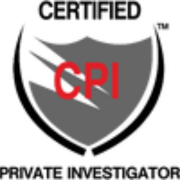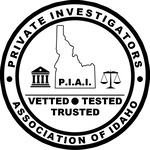One of the most important skills a PI will have at their disposal is the ability to rapidly develop rapport with people from all walks of life. From interviewing witnesses or the source themselves. The important thing to look for is if the person being interviewed is confrontational or not. The ability to collect the information needed lies on the degree to which you will develop that rapport. You must be able to quickly find something that you and the interviewee have in common. This can be such commonalities between you and the person make to form that connection or bond of understanding.
All of us have a want to be liked, and the person you are connecting with needs to feel valued. We all want to be helpful when we can be. When building your rapport, it is prudent to remember the author and motivational speaker John C. Maxwells famous quote: “People don’t care how much you know until they know how much you care.”
Keep an eye on facial expressions and eye movement to see if they are recalling something or making it up. When you are talking to someone, try not to interrupt them and let them speak. If their eyes move up and to the left they are telling the truth and recalling if they dart right they are fabricating a lie. In this case, ask for clarification of what they said and then repeat the statement with confidence.
If you don’t want to listen to someone who has no interest in what you have to say, then ask them for their opinion on a particular topic. This will help you get an idea of what they think about your subject. If you are asking someone to recall a memory that was important to them, try asking them what they remembered from that experience. Their memory is not always reliable, but it can be used to make sure that you are getting the most out of your interview. When you’re interviewing someone, remember that they are talking from memory and recollection of events as they occurred to them. This means that you shouldn’t just tell them what happened, but also give them a chance to give you their own view from it.
Interview the person, don’t interrogate the person’s motives or motivations. Instead, ask questions like: Where dit it occur? What time was it? What was the weather like when you saw…? Did you hear anything out of the ordinary? Leading questions can help jar a memory and give you the best results. Give them open-ended questions to help.
You do not want to lead them to say what you want them too however. Example would be “Statements on other reports indicated a red car with a broken window.” you do not want to imprint items from other interviews, as this may cause doubt in their own image and what they say. It can also make them feel pressured and that you don’t take what they have seriously lacking belie in them.
Interviewing witnesses gives you multiple points of view separate from each other that you can piece together. One person may say they heard a loud bang that sounded like a gun going off.. When another may not mention it unless you ask them about any sounds they can recall. Once you ask questions their memories click, and they recall a lot more in some cases.
You can record the interview as well. In Idaho as a one party state only you need to know its recorded, however common courtesy and professionalism is to let them know you are recording.
When writing up an investigative report it is important to be aware of what your audience (client, court, law enforcement) will expect from you. You must also keep in mind that there are many types of investigative reports. Some are for law enforcement, others for government agencies and some are just to get a quick look at the facts. If you want to make sure that your report is accurate and true, then you should write down all the information that is needed to complete your investigation. The more information you have, the better your chances of getting a good result. When writing an investigative report, always remember that you are not going to be able to tell everyone about every detail of your investigation. It is best to start with the most basic details such as where you found the information or scenario, what happened in that area and how long it took you to solve the case. Before you can begin to describe the situation. This will help you avoid making too many assumptions and may be helpful for you if you find yourself in a position where there is no way to prove anything.
The more specific the details, the easier it will be to get started. You should also keep in mind that you don’t want to make any assumptions about the person who might be the subject. An investigative report should have a clear beginning and end. It should include all the facts that are relevant to your case, the circumstances of the case, and any possible solutions. The best way to start with an investigative report is by asking questions. The more specific the information, the better. Ask questions about what happened during your investigation and how the investigation went. The more specific the information, the better. You can use this information to help you decide if the investigation was successful or not. If you’re unsure whether the investigation was successful, ask questions about what happened during your investigations or if there were any other factors that could have been involved. The most important thing to remember when conducting an investigation is that it’s always good practice for the investigator to be able to answer questions before they are asked. This will save you a lot of time in the future.







